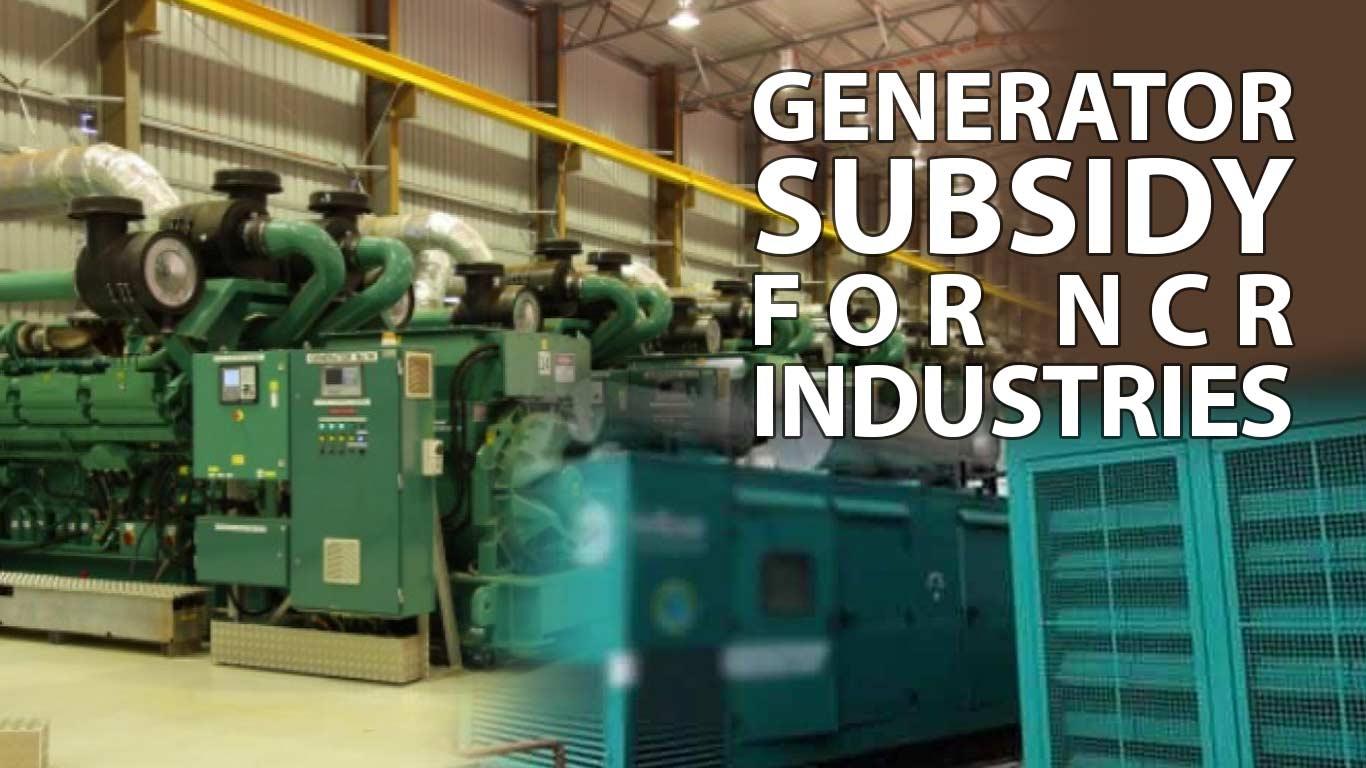
UP Govt Extends Generator Subsidy For NCR Industries
This decision aims to support industries in complying with the Commission for Air Quality Management's (CAQM) winter action plan, as reported by TOI.
The subsidy scheme, initially introduced in 2019 for a five-year period, was designed to assist industry owners in transitioning to cleaner fuels, addressing concerns over high conversion costs impacting production.
Sreenath Paswan, Deputy Commissioner of Industries in Ghaziabad, detailed the extension, stating that micro and small-scale industrial units will be eligible for a 50 per cent subsidy or Rs 5 lakh, whichever is less, to purchase or retrofit generators operating on cleaner fuels such as LPG, natural gas, biogas, propane, and butane.
The subsidy structure is tiered based on generator costs. Units purchasing generators priced between Rs 10-40 lakh will receive a 40 per cent subsidy or Rs 10 lakh, whichever is less. For generators exceeding Rs 40 lakh, a 25 per cent subsidy or Rs 20 lakh will be provided.
In Ghaziabad alone, 296 industries currently rely on biofuels like wood pellets, molasses, husk, and coal, contributing significantly to poor air quality during winter months.
Factory owners have expressed resistance to switching to cleaner fuels, citing concerns over increased production costs and high conversion expenses.
One factory owner highlighted the financial challenges, including substantial security deposits required for PNG services.
Paswan emphasised that the subsidy aims to alleviate some of these financial burdens and encouraged industries to apply for the scheme.
However, environmentalists argue that the presence of numerous unregistered factories operating illegally on biofuels undermines pollution control efforts.
Sushil Raghav, an environmentalist, pointed out the lack of data and clear plans to address illegally operating industries, particularly in areas like Loni.
Despite these challenges, a pollution board official reported improvements in air quality over recent years.
The annual average PM2.5 levels have decreased from 164.2 in 2017-18 to 77.8 in 2023, with further improvement to 45.83 recorded from April 1 to September 19, 2024.
Similarly, PM10 levels have also shown a significant reduction. The official attributed these improvements to concerted efforts by all stakeholders, with the annual average Air Quality Index (AQI) improving from 272.5 in 2017-18 to 128.1 by September 2024.
(KNN Bureau)
Legal Disclaimer:
MENAFN provides the
information “as is” without warranty of any kind. We do not accept
any responsibility or liability for the accuracy, content, images,
videos, licenses, completeness, legality, or reliability of the information
contained in this article. If you have any complaints or copyright
issues related to this article, kindly contact the provider above.






















Comments
No comment